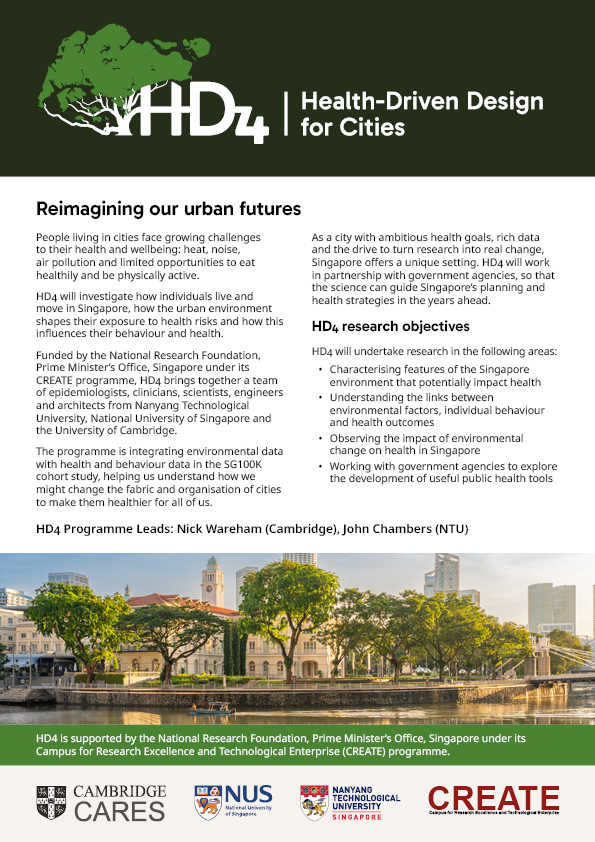WP2: Relationship between urban environments and health-related behaviours
How does the environment affect our behaviour?
Cities are dynamic, evolving entities shaped by and for people. Understanding the links between urban built environments and the health-related behaviours of residents is crucial for addressing the challenges and opportunities of rapid urbanisation and creating more sustainable, healthy and equitable cities.
However, many questions in this area remain unanswered, particularly in a diverse, multi-ethnic population like Singapore. WP2 will draw on data captured in WP1 and link this with information from SG100K to allow us to explore environment-behaviour relationships.
Characteristics of the city to be explored include land use, walkability, transport infrastructure, green and blue spaces, food retail and noise. We will link these with behaviours including physical activity, diet and sleep.
These findings will inform WP3, which will investigate the relationship between environments, behaviours and health outcomes. Our intention is to produce evidence that addresses agency needs and priorities.
Research objectives:
- – Characterise the associations of environmental characteristics with physical activity, sedentary behaviour, sleep, diet and fitness
- – Characterise health behaviours over time and by population subgroup
This research is supported by the National Research Foundation, Prime Minister’s Office, Singapore under its Campus for Research Excellence and Technological Enterprise (CREATE) programme.
Leads

University of Cambridge, MRC Epidemiology Unit

Nanyang Technological University, Lee Kong Chian School of Medicine

University of Cambridge, MRC Epidemiology Unit


